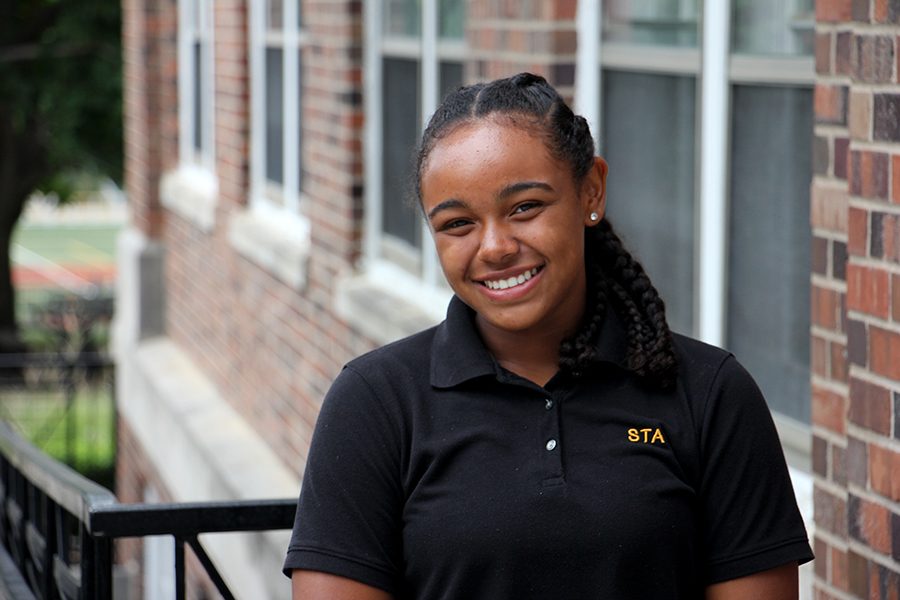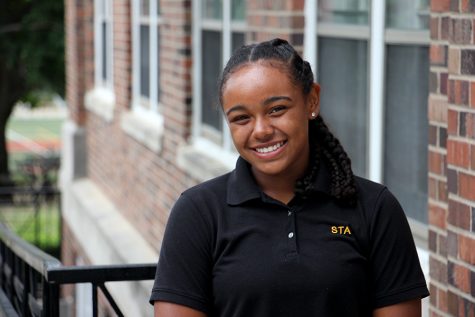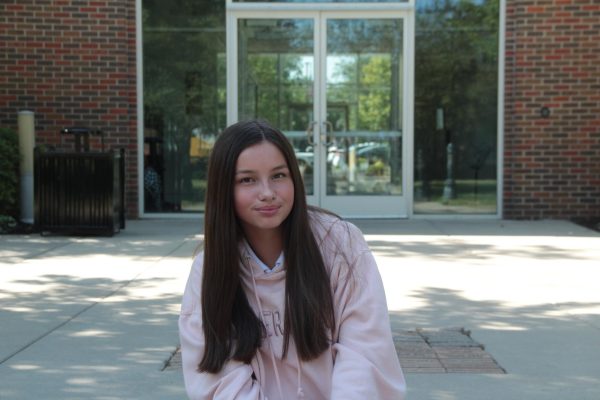“Get Out” was scary good for all the right reasons
The movie “Get Out” gracefully addressed social issues, which is why I saw it twice and wouldn’t hesitate to see it again.
March 24, 2017
“Get Out,” directed by Jordan Peele, is a horror movie that tells the story of a black man named Chris who goes to meet his white girlfriend’s parents, the Armitages. He becomes paranoid as he learns about the shady business going on around the Armitages’ plantation—I mean estate.
It’s no surprise that the movie is riddled with comic relief from beginning to end, seeing as how the director is one half of the witty duo Key and Peele. But the thing about the movie that stands out isn’t it’s comical genius, it’s the way Peele subtly addresses social issues.
“Get Out” prompts its audience members to pay heed to its underlying meaning from the very first scene. The movie opens with an unidentified black man dressed in dark colors walking through a suburb, minding his own business. Without any good reason a car begins to follow him.
Black audience members are forced to empathize with the character, because we’ve seen that very same scene in our own lives too many times before. Whether it be the black man who gets pulled over for driving too nice of a car in too white of a neighborhood, or the teens who get followed around by the store clerk because a group of black kids in a convenience store has grown synonymous with shoplifting.
This scene, though, strikes a chord deeper than these everyday occurrences because the small details of the set allude to the murder of Trayvon Martin in 2012. Peele preserves the subtly of the allusion by not giving the scene much time to resonate with viewers. The camera abruptly cuts to a mirror shot of Chris, as Childish Gambino’s “Redbone,” plays in the background. The chorus of the song repeatedly reminds listeners to “stay woke,” setting the tone for the rest of the film.
On the drive to the Armitages’ estate, the couple has a startling encounter with a deer on the country road, resulting in a busted headlight and broken rear view. As shown in the trailer, a cop arrives at the scene, and upon seeing Chris asks for his I.D. even though he wasn’t the one that was driving, and they haven’t done anything illegal.
Chris doesn’t hesitate to get out his I.D and calmly try to hand it to the officer. In light of police killings such as those of Alton Sterling, Philando Castile and Michael Brown, young black men like Chris have learned to exercise extra caution when dealing with police. His girlfriend, Rose, was ignorant to this idea and stood between the police officer and Chris, using profane language and not allowing the I.D to be passed. With this scene Peele opened audience members’ eyes to life as a black person in America, more specifically black men.
For me the scene forced me to think back to every time my 20 year old brother leaves the house to make his nearly 3 hour drive back to Truman State. My parents give him the spiel that way too many parents of black young men feel obligated to give their sons:
“If you get pulled over, don’t move around too much”
“Don’t reach for anything unless they ask you to”
“Don’t give them any reason to say they felt threatened”
When Chris gets past the police encounter and first meets Mr. Armitage, he is nowhere near hostile, and seemingly far from racist. Like most pop culture today, Peele seems to use this idea to take a stab at Trump supporters. What’s different though, is which Trump supporters he’s calling out. He doesn’t call out Trump supporters who won’t leave the house unless they’re sporting their favorite “Make America Great Again” hat. He calls out the white liberals who, like Mr. Armitage, claim that they would have voted for Obama for a third term, but channeled their underlying prejudices into a vote for Trump .
Though the film seems like a horror movie at first glance, it rarely elicited a collective jump from the audience. The horror came in the harsh reality of its underlying messages. To me the creepiest and most horror-esque part of the film is the song that plays in the opening and closing scenes.
The song is in Swahili and sounds like a choir of whispers. It is titled “Sikiliza Kwa Wahenga,” which according to Charles Pulliam-Moore of Fusion.net translates to “listen to your ancestors.” But wait, it gets better. The songs lyrics loosely mean “something bad is coming.” Sounds to me like someone is trying to tell listeners to “get out.”











Rhianna Jones • Mar 24, 2017 at 2:14 pm
Nice, Gabby!!! Get Out was so good and this encompassed it perfectly!!